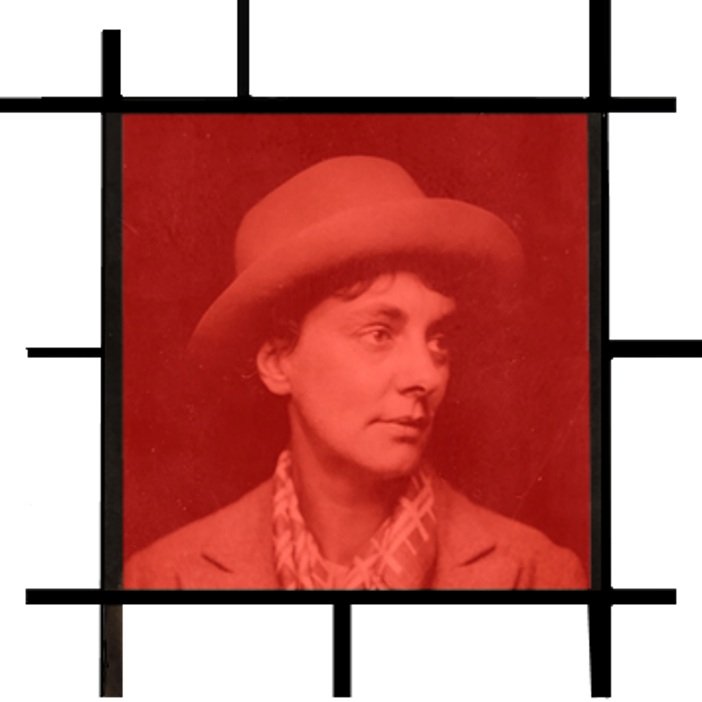LGBT+ History Month - Meet Doris Brabham Hatt, modernist painter & feminist activist
FEBRUARY is LGBT+ History Month, an annual celebration of lesbian, gay, bisexual, trans & non-binary history.
In the UK it is celebrated in February each year, to coincide with the 2003 abolition of Section 28, a law passed in 1988 by the UK government that stopped councils and schools in England & Wales ‘promoting the teaching of the acceptability of homosexuality as a pretended family relationship.’
The aim is to be an exciting, informative and celebratory month, to educate out prejudice and make LGBT+ people, in all their rich diversity, visible. This year's theme is ‘Politics In Art’. LGBT+ History Month is spotlighting five people to illustrate this theme. Here is the first:
Doris Brabham Hatt
24th September 1890 – 27th August 1969
Doris Brabham Hatt was a modernist artist and activist. She was born in 1890 into an affluent family in Bath. After being drawn to art as a teenager, she studied at the Bath School of Art, Goldsmith’s College and the Royal College of Art. She spent time in Vienna, where she studied woodcutting, and Paris, where she met modernists such as Legér. She was influenced by artists such as Cézanne and Picasso, and revolutionary new approaches such as cubism, purism and abstraction.
Her paintings were first exhibited at the Grosvenor Gallery in London in 1918. Over five decades, her work featured in 40 exhibitions. Hatt developed a painting style that was meticulous in its planning and execution. Her great mantra was 'to simplify and at the same time intensify’, and her guiding aim to present only the essential elements in her compositions whilst rigorously discarding all that was superfluous to the intended design. In her own words, this disciplined process meant 'order' had
'been brought out of chaos - that life after all is not so difficult as it seems. This will give you a sense of power and well-being as you study the picture.'
As well as being a modernist painter, Hatt was a socialist and feminist activist. Her interest in politics started during the First World War after seeing levels of poverty in London she had not seen where she grew up, and seeing the impact of the war. She was involved in the New Woman and Women’s Suffrage movements and joined the Communist Party in response to the rise of Fascism in the 1930s.
Hatt stood as Communist Party candidate for Clevedon Urban District Council in 1946 and 1947. At the time, there were no women council members. In both instances, she was unsuccessful.
Hatt designed her Art Deco Bauhaus-style house ‘Littlemead’ in Clevedon. She lived there with her partner Margery Mack Smith, a weaver and school teacher. Littlemead became a meeting place for like-minded people to talk about art and politics, as well as a place where Hatt hosted free art classes and gave lectures.
To the ‘society’ of the polite town of Clevedon, she was seen as scandalous. Not just living there with her partner, but because she could be found attempting to sell Daily Worker newspapers to local people. She managed to change the political make-up of the small town in the longer term, becoming a living example of equality, showing others how to start embracing civil rights and social change through her art and activism.
In her 60s she had her first solo exhibition and was recognised as a British artist, including a retrospective exhibition at the Royal Watercolour Academy.
After Doris died on 27th August 1969, a relative burned her correspondence and personal records in an attempt to conceal her life as a feminist and a lesbian. Fortunately Margery was able to move two crates of sketchbooks, portfolios, working drawings, and what letters and writings she could to her new home, but a significant amount was lost.


